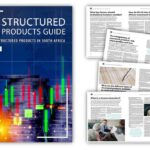Large Language Models (LLMs) and their more recent cousin – Retrieval Augmented Generation (RAG) – have been taking the world by storm. This storm is not going to leave the world of financial advice unscathed. In fact, we believe that it is going to fundamentally change the way advice is given.
Most people have already encountered LLMs in some way. They are prompt-based generative models – they generate text and images in response to prompts by a user. They are incredibly powerful in this area and give users the ability to generate content very easily. They are not perfect, however, as they make things up if there is a need to do so. As they have been developed to be deployed in as general a context as possible, they are not that useful in specific contexts such as reporting or financial advice where accuracy is vital.
A new approach overcomes these problems:
RAG opens the door for the use of LLMs in both financial reporting and advice. In fact, we believe that the opportunities this approach offers are too incredible to ignore.
RAGs differ from traditional LLMs in that they combine the generative power of these generalist models with access to a store of specialised, local and time-specific knowledge such as your client’s current portfolio, commentary from the managers they are invested in and news about global investment markets.
If properly constructed, they offer advisors the potential to accurately generate reports reflecting this information in an automated way. Imagine the value-add to your clients of having a unique performance report that reflects their returns and commentary pertaining to their portfolio only. Imagine the time savings made of being able to generate these reports automatically, and even on demand.
This technology will be part of your future.
While these are amazing developments, they just reflect the potential for doing what we do now – just better (much, much better!). But wait, there’s more! RAG offers other benefits for an advice process that are simply not possible now. We believe that they can improve the advice process by allowing advisors to do things differently. More specifically, they incorporate personality-based information about the client and use this information to suggest interventions and generate communications in a way that resonates with them better and leads to better investment outcomes for them.
My colleague, Paul Nixon, and I have been investigating our clients’ (mainly) self-defeating investment switching behaviour for many years. More recently, we used machine learning-based tools to do so. We have published several academic papers on this topic because the use of machine learning to understand clients is seen to be novel and helpful. In this work, we have identified clusters of investor behaviour that significantly vary from each other. This can be useful to advisors to segment their client books into groups that require different interactions, as their reasons for switching their investments are different. Crudely speaking, some may be performance-seeking, while others may be switching funds to avoid risk. We have also developed a successful predictive model of these switches – again, using machine learning models. We are currently exploring the role of psychological variables in terms of explaining this behaviour. Intuitively, they should help, but it is very important to demonstrate that you can measure these reliably and that there is good empirical evidence that shows they matter.
These findings provide significant insights into the nature of your clients and their behaviour – but what we have found is that advisors struggle to interpret these insights and choose the correct interactions to use them. This is where RAG offers something completely new. It tells you which clients are likely to switch and why – and it offers you advice on how to leverage this information. It helps generate communications that are tailored to the client’s psychological makeup and addresses the underlying reasons for the switch. That’s something that good advisors may do instinctively – but not all advisors can do so.
RAG offers the potential for more efficient reporting and better-quality advice. Finally, by providing the ability to store client information in a more explicit form, it provides a way to increase the value of your book when you retire. While there are technical issues to overcome, this technology will be part of your future. It will be very exciting to see this happen and be part of it.


Behavioural Finance, Momentum Investments













